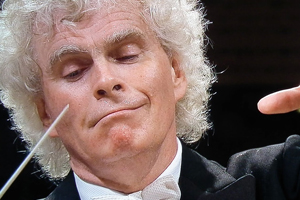
We’ve met Woody Allen
An exponent of the interwar period, born in 1935, Woody Allen represents the epitome of experimental cinematography. Starting with sarcastic and witty comedies, such as “Love and Death” (1975) or “Sleeper” (1973), his subjects matured into more sophisticated ideas, communicated through the instrumentality of “intellectual” main characters, who are often Nihilists, Cynical or Atheists. His recent movies depict complicated relationships that evolve in the breathtaking scenery of a beautiful city – “Midnight in Paris” (2011), “To Rome with Love” (2012) or “Café Society” (2016) – and cause the public to walk down nostalgia lane. We have followed Woody Allen in his counterpart city – New York, and asked him for advice on a life well spent.
Groupe d’études géopolitiques. – You are a very popular filmmaker in Europe, and in France, in particular. Do you think that your sense of humor and philosophy of life are better perceived by Europeans than by Americans?
Woody Allen. – I would only explain it by saying that when I grew up, during the most film-formative years of my life, I was obsessed with foreign movies, European movies, as well as Japanese and Swedish movies. In some way, it is like listening to music, either Mozart or jazz—you keep listening to it and it becomes a part of you. When you express yourself, it unconsciously influences your work. It has influenced mine and resonates with Europeans.
Is there a specific humor in Europe? For example, can you think of a joke or aphorism that a European would get and laugh at but not an American?
I can’t. I can think of jokes that Americans might laugh at but not Europeans, but I don’t know the nuances of European jokes to do otherwise.
The first movie you played in and wrote was What’s New Pussycat?, which I can watch over and over again. The scene takes place in France, and most of it in Paris. This was in 1965. You came back there in 2011 with Midnight in Paris, which is also a movie about time and about nostalgia. What would you say has changed the most in Paris—and in other European cities—between when you first discovered them and now?
First, I would say Paris is indestructibly beautiful, but what has changed about it was there was some commercial deterioration of its beauty, in phenomena like McDonalds on the Avenue des Champs-Élysées. I would have liked to stroll the Champs-Élysées when it was first built, not now that it has car showrooms, movie houses, and cheap restaurants. Paris remains one of the great bright spots of human civilization, although recently I do have concerns about some growing anti-Semitism in the country. That would really be awful, considering what a fantastic human achievement France—and particularly Paris—is.

“Paris is indestructibly beautiful, but what has changed about it was there was some commercial deterioration of its beauty.”
In the last ten years you shot many of your pictures in European cities—Barcelona, Paris, Rome. What is there in their spirit and culture that you wished to pay tribute to? What would you say these European cities share?
European cities are fun to work in, beautiful to look at, and deeply cultural. They add great substance and physical attractiveness to the films. All the cities I have worked in in Europe I have loved, and that is because I have only chosen to work in cities that I love beforehand. I would never make a film in a city that I could not live in for months and enjoy. So, you can imagine what a treat it is to film in Europe given my feelings about European cities and culture.
Why did you choose to make a film about Barcelona and not Madrid?
For a few reasons: the first was because I filmed in the summer and I would not be able to film in the heat of Madrid in the summer, whereas Barcelona is much cooler, and I have friends in Barcelona. But if I was filming out in fall or winter when the temperature was lower, I could easily find myself shooting in Madrid because I find Madrid also a beautiful and exciting city.
In my opinion, you filmed these cities as you film women: with passion and wit. Do you think they can also be loved the same way, with the same pleasures and the same neuroses? How do you love Europe?
You certainly can link any great passion to certain other great passions. My feelings of passion towards certain European cities very much mirror my feelings toward great women. Probably New York is the most extreme example of that, even though it is not Europe. I’ve often likened New York to a very difficult, crazy woman that gives you a very difficult, hard time and is disappointing, unmanageable, argumentative, but you cannot help loving her. I do not know the European cities as intimately, so I can love them without spending enough time in them to get to know their faults.
New York is often said to be the most European city in the United States. Do you agree with that?
Yes, I agree with that completely. New York is very European and even though it is not totally European, it is so much closer to a European city than any other city in America. I’ve travelled to many cities in America. There are many wonderful ones that have their own unique personalities, but New York is very much like Paris or London and if I could not live in New York rather than live in an American city, which is less European, I would love in Paris or London. I include London even though it’s not technically Europe.

“New York is much closer to a European city than any other city in America”
Jewish references are very present in your films about New York, but seem somewhat absent of your “European” films: how would you explain that?
Because of the sacredness of religion, the mention of religion for many years was always taboo when one was making jokes. Consequently, when the custom loosened up one could make more jokes about all the religions. So, the only reason I joke about Jewish things is because it’s often an easy laugh. The same goes with sex and psychoanalysts; these subjects one doesn’t have to work too hard on and can still get a laugh. I can make a sex joke and because of the subject matter, the audience is more nervous and ready to laugh readily, and same goes with religions. It would be the same if I was to make a Jewish joke or a Catholic joke. Perhaps you have noticed, racial jokes are made by other comedians all the time, gay and lesbian jokes, too. Because it is now permitted to make these jokes in the culture, it is easy laugh-getters. If I am stuck I know I can always go to a Jewish joke, a sex joke, a joke about Donald Trump or psychiatry, and I would get an easy laugh.
What does Europe look like from America?
Europe was always exotic to Americans. It was always international intrigue, sophisticated and sexy women, spies, fine wines, and exciting sports cars. It has a very exotic quality to Americans, who always loved Paris and London and Spain, even if they would have never been there. They love stories and movies set in those locations.
“Europe was always exotic to Americans.”
For example, no one I know has ever been to a bullfight but everybody loves the atmosphere, the stadiums, the bullfighters, the danger. However, I see Europe as a group of separate nations with very separate tastes, customs and culture.
What does American art and filmmaking owe to Europe, and vice versa?
America owes only that the best filmmakers when America was coming into age as a good filmmaking country were innovative European filmmakers. Those of us who take movies seriously were influenced by Truffaut, Fellini, Bergman, Bunuel, Godard. So, these were the great contributors and innovators of film and they come from Europe.

“I see Europe as a group of separate nations with very separate tastes, customs and culture.”
I’ve been very influenced by Bergman, by Fellini, Truffaut and probably many others not quite as consciously as those.
I have a question about Bananas, which you filmed in 1971. Can you say a word about the context of that time? And most of all: what is the true identity of the Republic of San Marcos?
I’ll tell you an interesting thing about Bananas. I made the film just to make a silly joke laugh film so the audience could come in, laugh, go home, and forget about it. In the United States it was successful and it had exactly that effect. But I remember when I went to Europe to promote it, all I was asked by every European country were political questions about it. I have of course felt all the political meaning was being read into it as I had never intended any political meaning in it, but it really showed the difference between a European mentality and American mentality. They took their films more seriously in Europe, they were more politically engaged than Americans, less escapist, even when the meaning was not intended, they found meaning in the broadest, silliest comedy. It impressed me greatly when I travelled through Europe talking about the film with journalists.
“If I am stuck I know I can always go to a Jewish joke, a sex joke, a joke about Donald Trump or psychiatry”
If psychoanalysis had not existed, would you have committed suicide… or would you have invented it?
I’m not suicidal. We are hardwired to live and so if someone comes into the room with a gun, I resist him shooting me and try and save my life. That’s automatic. So, I am not a person who would commit suicide. Cerebrally, I can think of a million reasons why one might not do as well in this terrible world, but that’s all in the head. In the blood, you are constructed to resist that idea and I do. It has nothing to do with psychoanalysis, it is purely in the blood and marrow.
_________________________________________________________________________________________
Groupe d’études géopolitiques is an association based at Ecole Normale Supérieure, 45 Rue d’Ulm, Paris, which gathers more than one hundred students, young scholars and journalists, who wish to work at the advent of a new, political Europe.
Recognizing that the continental scale is the only relevant to address the multiple crises the EU is facing, the group was created last year and is powering five major projects: an online publication – Le grand continent, a conference cycle – Une certaine idée de l’Europe, broadcasted all across Europe, weekly debates in Paris’ famous Latin Quarter, and a weekly newsletter – La lettre du dimanche.
Recently, the association launched a second newsletter, La lettre du lundi, which reviews world’s weekly geopolitical developments through the brief analysis of thirty news located on an interactive world map. The newsletter is available in French, Romanian and Italian. To subscribe: https://lldl.eu/
The interview was realized by Groupe d’études géopolitiques, and it was first published in Le Grand Continent.









